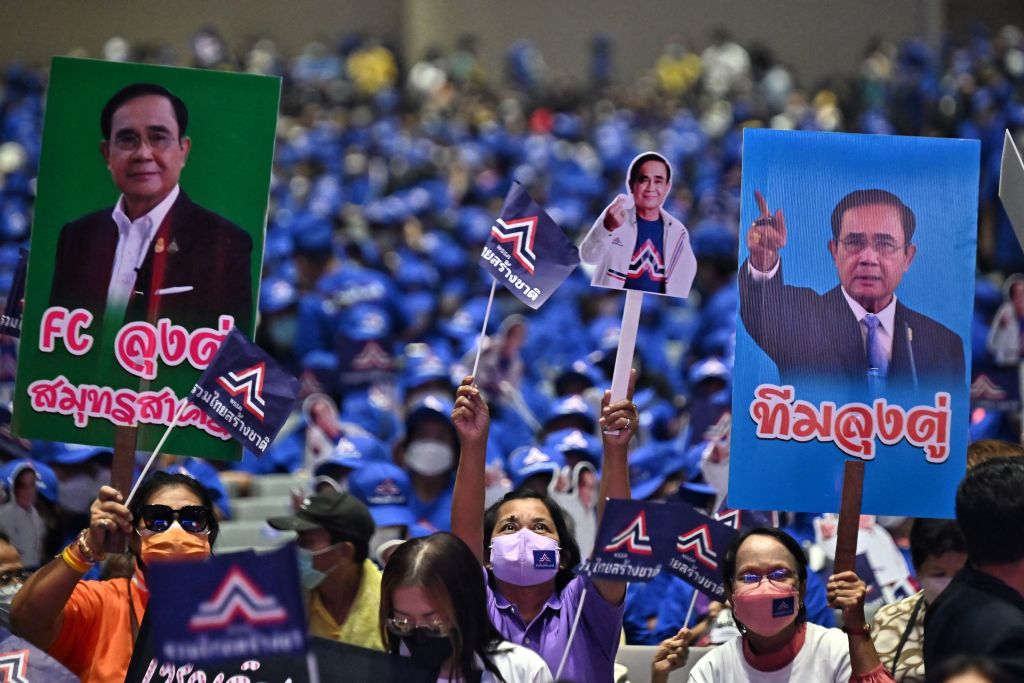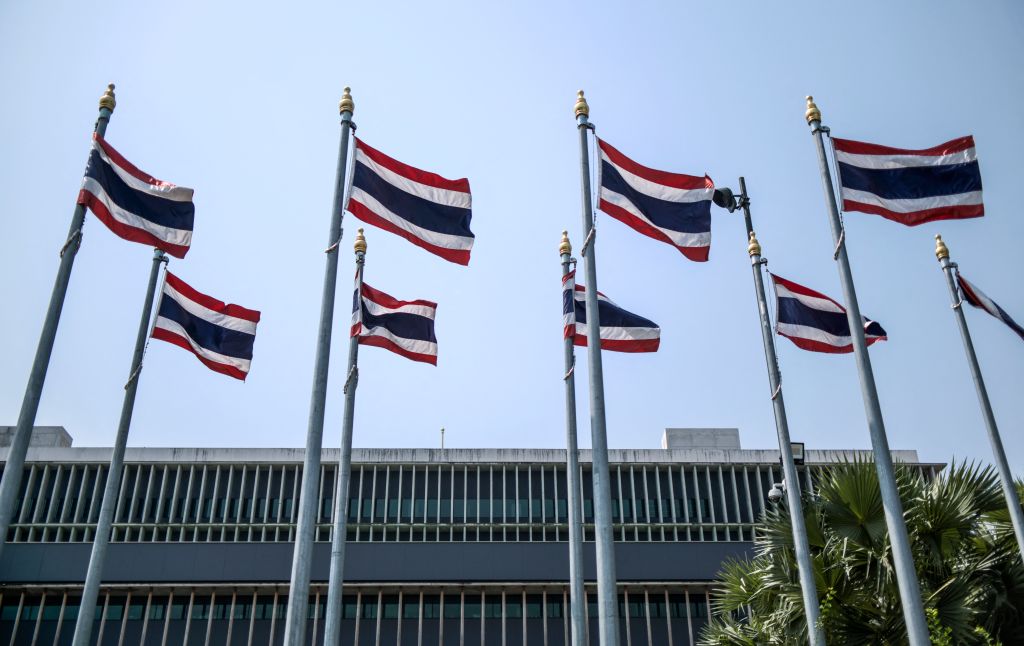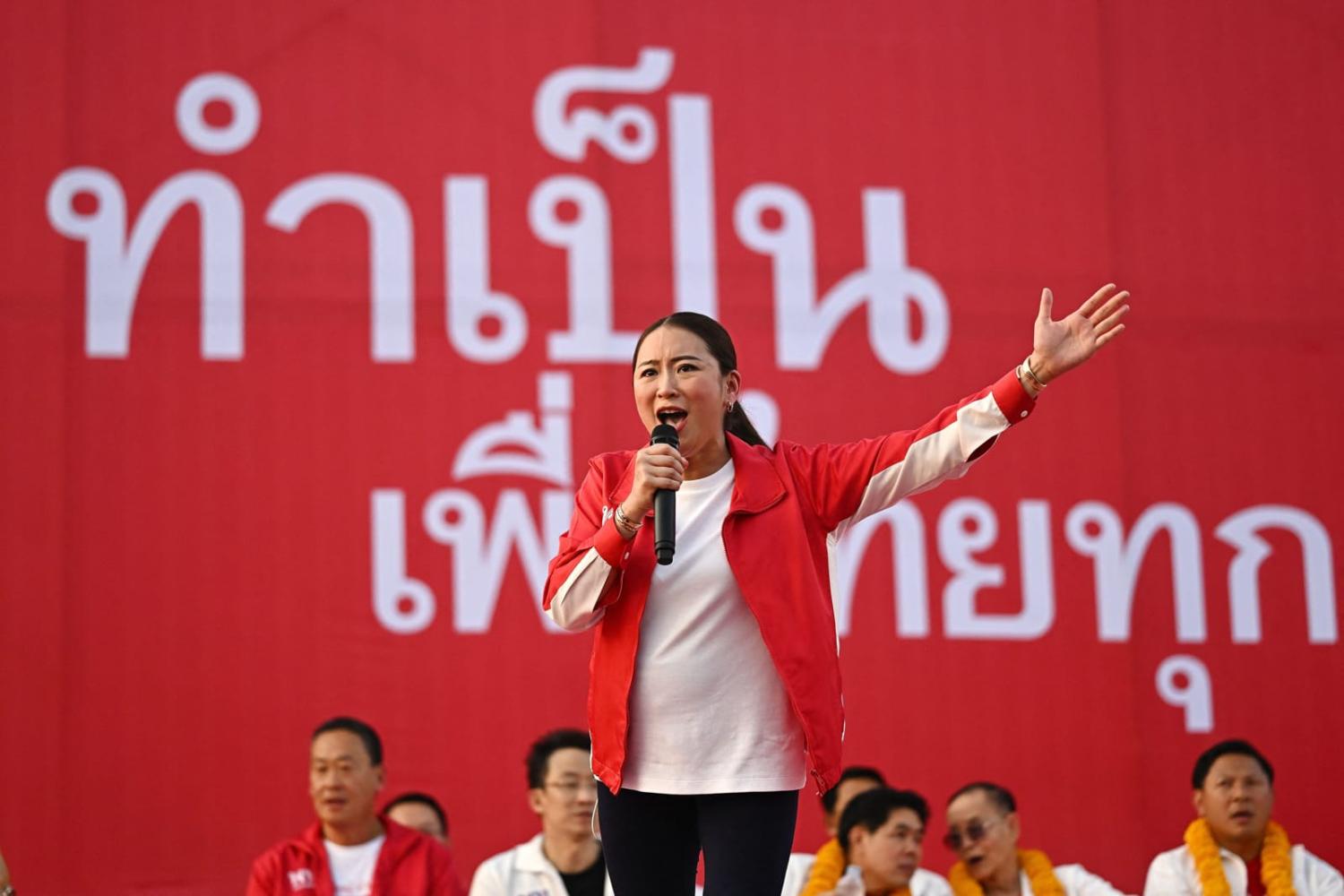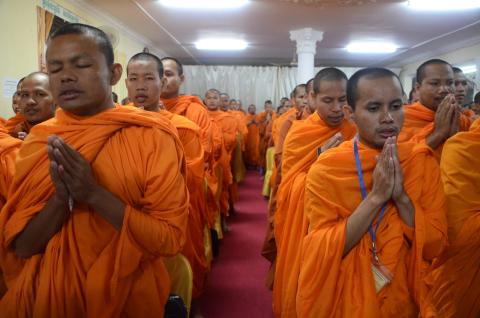Polling daze
This year began with The Economist Democracy Index giving a striking upgrade to two of the countries which have been a longstanding deadweight on Southeast Asia’s recent political evolution.
Thailand received the biggest rank rise in the world to 55, a level not seen for the country since the clean-up election after the 2006 removal of then prime minister Thaksin Shinawatra.
But Cambodia also received a relatively big upgrade, albeit to a much lower 121 rank. That decision hasn’t aged well with crackdowns on both the opposition and the media since then by Prime Minister Hun Sen as he seeks to install his son Hun Manet as leader after an election in July.
However, my travels in both countries in the past month have shown that the Democracy Index focus does seem to capture some sort of new zeitgeist.
Posters for the opposition Candlelight Party in Cambodia are more noticeable for the way they only occasionally appear amid the sea of propaganda for the Hun family’s governing Cambodian People’s Party. But in private, ordinary Cambodians can be remarkably frank and feisty about their political predicament. It suggests a deep desire for more freedom in a country that has undergone some of the greatest social disruption seen in the region in modern times due to the Khmer Rouge genocide.
But across the border in Thailand, the near two decades of coups, protests, military fixes, and party manipulation is obscuring a newly competitive election environment. This raises the prospect of the country returning to a more prominent role on the regional diplomatic scene.
While Thailand’s 14 May poll lacks the sheer scale and big personalities of next year’s votes in Indonesia and India, Thailand is the election to watch in Asia this year. That is not least because of the timely pro-democratic message it will send to the neighbouring authoritarian regimes in Cambodia, as well as Myanmar, which this week cancelled pre-existing political parties.
And there are several interesting trends emerging from Thailand.
Back to the future
When self-exiled former prime minister Thaksin Shinawatra used interviews with Japanese journalists last week to suggest he might return to Bangkok to serve out disputed jail sentences, he only underlined how his family political movement is back.
His daughter Paetongtarn has been leading most polls for preferred prime minister for months just as her Pheu Thai Party – the latest iteration of her father’s old and disbanded Thai Rak Thai Party – has generally led the party polling.
After the military used its traditional blunt force and then legal manipulation to get rid of Thaksin in 2006, and subsequently his prime minister sister Yingluck in 2014, there seems to be a general acceptance by the establishment “yellow shirt” forces that the time has come to at least countenance a Shinawatra-influenced party back in government.
But the party jumping that has gone on since Yingluck was pushed from power and Pheu Thai was in effect robbed of the chance to rule at the 2019 election means this is not the “red shirt” street protester influenced party of the past. It could just as easily join up with some former coup leaders in a future coalition government in the new look Thai democracy.
Changing uniforms
One of the more curious sights of the election campaign is watching former military coup hardmen donning everchanging civilian outfits to look more like democrats. General-turned-coup-leader-turned-prime-minister Prayut Chan-o-cha gave free rein to the party jumping back in January. He exited the military-created and governing Palang Pracharath Party for the smaller but still conservative establishment United Thai Nation Party.

That reportedly reflected tensions in Palang Pracharath as fellow general, coup co-leader, and Deputy Prime Minister Prawit Wongsuwan sought his own shot at the post-election leadership. Prayut apparently sees himself as a potential compromise prime minister of a new coalition government if he comes from a somewhat less military tainted party – even if he doesn’t actually run for a seat in the parliament.
There appears to be an echo of the new politics of Indonesia and Malaysia going on here. There the once dominant but now discredited parties Golkar and the United Malays National Organisation have morphed into surviving as smaller, king-making players, as new popular entities such as Gerindra and Keadilan have respectively emerged in those countries.
Palang Pracharath and United Thai Nation are post-coup creations and thus relatively “new” parties. But they are the latest political manifestations of the basic military power in Thai politics, with at least one of them likely to play a power-broking role after the election.
And if all else fails the former generals can probably count on significant support from the 250 senators they largely handpicked who get to vote for the new prime minister alongside the 500 lower house MPs. However, analysts are divided over whether the new spirit of party jumping might take also root among the senators now that they are well into their terms.
Party time
Late last year, looking forward to the election, Thai Development Research Institute (TDRI) president Somkiat Tangkitvanich delivered a heartfelt plea for intergenerational political reconciliation, warning that: “If the powers-that-be refuse to open up and meet some of the youths’ demands for change, the world will soon leave Thailand behind.”
So, it was surprising during discussions in Bangkok to hear one of the country’s more liberal commentators despair at the lack of political pragmatism among young politicians as the country searches for some sort of new consensus coalition to replace the old military-led government. The youthful thirst for a new form of politics was the standout feature of the 2019 election when the start-up progressive Future Forward Party proved the upset winner, bagging the third highest number of seats from scratch. But it was quickly knee-capped by politically motivated court actions, with charismatic leader Thanathorn Juangroongruangkit disqualified from parliament.

Most analysts see this movement, which Thanathorn still supports, as the natural party of opposition in Thailand since it has persisted with an unvarnished progressive reform agenda, including repeal of the laws which limit criticism of the king.
But this week the party’s second iteration, the Move Forward Party, under new leader Pita Limkaroenrat topped an opinion poll of Bangkok voters. With the other major more centrist and popular parties Pheu Thai and the cannabis liberalising Bhumjatthai regularly reported to be already involved in post-election intrigue, Move Forward may once again be the only refuge for disenchanted youth.
Price of populism
Thaksin Shinawatra transformed Thai politics by taking a big spending agenda of government benefits and actual policy to an emerging middle-class population more than 20 years ago. And regardless of whether he returns to the country, his legacy is alive and well in this election. Virtually all parties are swamping the voters with apparently unfunded promises. They range from Pheu Thai’s commitment to double minimum wages by 2027 to a United Thai Nation promise to triple cash handouts to 15 million welfare cardholders to 1,000 baht a month, which only trumped a 700 baht promise from its conservative political cousin Palang Pracharath.
The TDRI reportedly estimated before the real bidding got under way that nine major parties had offered 50 million voters benefits valued at about 3.14 trillion baht ($147 billion) after excluding overlapping promises. And this is despite rules banning economically unviable policies.
Thailand’s economic growth has lagged regional peers since the 2014 coup although that is more due to structural factors including an ageing population, deteriorating education system and declining labour productivity than political factors.
A credible election should only improve its attractiveness to foreign investors. But the future compromise prime minister will face difficult decisions devoting resources to necessary structural reform amid the freewheeling election promises of their coalition members.

